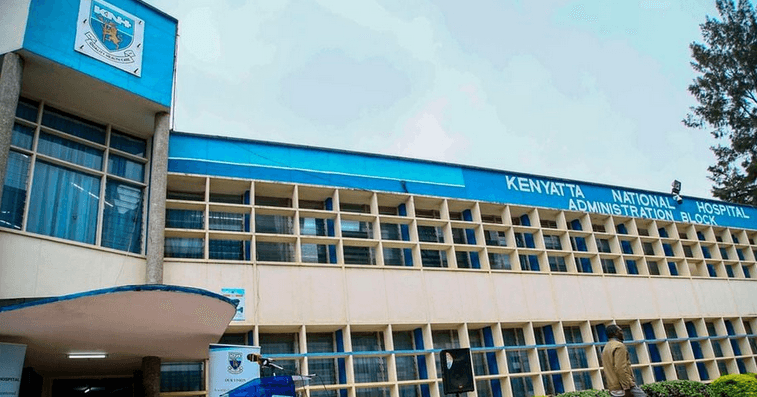Custodians of Kenya's forest resources are having sleepless nights trying to weed out the illegal activities.
These include illegal logging, charcoal burning, cultivation and forest fires.
Resources to tackle them are scarce, leading to a shortage of crucial manpower.
Today, one ranger looks after about 1,000ha and yet internationally, a ranger should be taking care of about 400ha.
There has been some reprieve, however, after 2,664 recruits graduated from the Forest Law Enforcement Academy at NYS Gilgil in Nakuru county on October 11.
Authorities are also confronted with rampant corruption, and vast tracts of land that are difficult terrain to monitor.
Aware of the challenge ahead, authorities are now exploring the deployment of different technologies to help curb illegalities.
In developed countries, latest technologies, such as drones, are being used in wildlife conservation, traffic and natural disaster management, territory mapping and farming activities, such as application of pesticides.
Some of the latest technologies in Kenya have been piloted.
In Kwale forest, for instance, a real-time forest alert system developed by KFS, known as ArcGIS Survey 123, is being piloted.
The Survey 123 is a mobile-based app for monitoring forest changes using time series satellite data.
Through the artificial intelligence-based system, KFS rangers manning forest resources have been using the application to report forest crimes.
Rangers receive satellite-based alerts with coordinates of where the incidents are to ensure real-time and guided response.
The app also allows community scouts to report forest crimes.
We are also exploring with the support of partners the use of drones to detect illegal forest activities
DRONES AS WELL
The state is also in the process of adopting drones.
On October 11, Environment CS Soipan Tuya said the new technology will help detect the illegal activities.
"We are also exploring with the support of partners the use of drones to detect illegal forest activities," Tuya said.
She said they are also urging partners to help fence off all protected ecosystems in the country.
On September 2021, the top KFS leadership were taken through a demonstration of the capabilities of an Unmanned Aerial Vehicle (UAV) by a Swiss company, Anavia, in undertaking aerial surveillance on forest ecosystems.
The KFS leadership appreciated the capabilities of a drone; an Anavia HT-100 UAV with integrated Electro-Optical (EO)/Infra-Red (IR)/Ultra-Violent (UV) cameras with capabilities of flying up to 400km on 13 litres of fuel per hour at 100km/hr.
The leadership committed to adopting the use of drones to complement its pre-existing systems, one of the approaches it entails to strengthen is aerial surveillance through the use of drones with high-end cameras for forest mapping, early detection of fire risks among other aspects entailed in forest conservation, management and protection.
Already, through the multi-agency approach in Kenya's security agencies, the service has a fully-fledged Airwing Division domiciled in the National Air Support Department.
The adoption of new technologies is gaining momentum as forest crimes give authorities sleepless nights.
Kenya is endowed with massive forest resources that are under the custody of Kenya Forest Service.
KFS is the lead agency tasked with the implementation of the government's agenda of attaining 30 per cent tree cover by 2032, up from the current 12.13 per cent.
The service protects 6.4 million acres of gazetted forests and another 420 million acres under counties.
KFS manages 135,567 ha (334,992 acres) of plantations that can only produce about 1 million cubic metres of sawn wood, which is far below the country's demand.
Most of the forest plantations are located in the five major water towers of Kenya: Mount Kenya, Aberdares, Mau Forest Complex, Cherangani Hills and Mount Elgon.
Illegal forest activities, however, threaten these resources.
Sadly, those charged with the protection of these resources have been implicated in the plunder that has been going on.
On March 2, Tuya raised the alarm over a spike in illegal forest activities and destruction of trees.
“There is wanton destruction of our environment as there is too much illegal logging happening and encroachments,” Tuya said.
“We are upping our enforcement to make sure we do not have people leaving us behind when we want to increase our tree cover to 30 per cent.”
Without giving details, Tuiya said some officials were conniving with criminals.
Tuya said her ministry is also relooking at laws aimed at conserving nature to make them harsher for offenders.
Some of the agencies being engaged include the offices of the Director of Public Prosecutions, the Director of Criminal Investigations and the Judiciary.
CRACKDOWN EFFECT
On May 5, Tuya would again raise concern over the spike in illegal activities before directing KFS Chief Conservator of Forests Alex Lemarkoko to deploy a joint enforcement team.
Tuya cited Mau Forest complex as one of the main hotspots.
She said the areas affected are Kericho, Nakuru, Baringo and Narok.
“I am directing the acting Chief Conservator of Forests to mount an intense, targeted and sustained crackdown across all forest ecosystems in the country to end these illegal activities,” she said.
The joint enforcement units include the National Police Service, Kenya Wildlife Service, Kenya Prisons and KFS Rangers.
Tuya also directed KFS to establish a fully-fledged hotline that is manned 24 hours for citizens to report illegal activities in their areas.
On July 31, KFS acting Commandant David Chege told the Star the crackdown was making headway.
“So far, we have arrested about 89 culprits,” Chege said during the commemoration of World Rangers Day at Nairobi Arboretum.
He said they were found conducting such activities such as charcoal burning, cutting trees illegally, encroaching on the forest or grazing.
World Rangers’ Day was set aside every July 31 to commemorate rangers injured or killed in the line of duty and to celebrate the work they do to protect the planet’s natural treasures and cultural heritage, including natural resources (forests) critical to human lives and livelihoods.
Despite the crackdown, illegal activities are still happening.
SABOTEURS TARGETED
During the ranger passout parade on October 11, where 2,664 rangers officially joined the service, President William Ruto would again wade into the illegal activities.
Ruto pointed to reports of rampant illegal logging, encroachment and other related illegal activities, some of which he stated are being aided and abetted by the KFS management and staff.
"I have instructed the Kenya Forest Service board that all those engaged in corruption be fired and taken to court. We have already found 23 forest managers and rangers," Ruto said.
"Those who have led to the destruction of forests should be removed from the government. From tomorrow, I do not want them to be on the government payroll. These are people who are saboteurs."
Ruto also directed that the officials be taken to court over their illegal dealings.
Kiptunga, Baraget, Logoman, Sururu and Molo are some of the forest stations that have been implicated in Nakuru county.
In Kericho, Sorget, Tendeno, Makutano and Kericho forest stations are reported to have been involved.
In Nyandarua, North Kinangop and Geta forest stations have been linked to illegalities.
Foresters, rangers and management have been implicated.
The 23 forest officers and rangers have been under probe and have been dismissed over complicity in forest destruction, corruption, dereliction of duty and incompetence.
CS Tuya said the 23 individuals sent packing have been linked to illegalities and found culpable for gross misconduct.
“There are other officers who are under investigations, and we are going to take stern action,” she warned.
Sources in KFS have revealed that some members of the board are also in the logging business, creating a conflict of interest.
“The investigations are ongoing and it does not matter which level you are in, whether board member, senior management or a junior staff, action will be taken,” Tuya said.
Sources said a senior official in the Mau conservancy has also been implicated but no action was taken.
The senior official is reported to be conniving with saw millers to make a killing.
“We have saw millers and they are on the radar and investigations are ongoing,” Tuya said.
Tuya confirmed that the Mau Conservancy, where the said individual is based, is the most affected by illegal activities.
“We have 10 conservancies across the country, but Mau Forest Conservancy, which covers 21 blocks, is one such notorious conservancy that covers a wide range,” Tuya said.
She said those aggrieved are free to pursue the recourse that they feel they are entitled to.
The CS urged members of the public to continue giving the state information and intelligence on illegal activities, saying they will act.
The government unveiled 0800724570 as the 24-hour toll free telephone number for reporting illegal forest activities including logging and charcoal burning.
The number is manned 24 hours and a response will be given by the hour each time a report is made.
These responses will be for all gazetted forests.
CHANGE OF GUARD
On October 13, the state made another surprise move by revoking the appointment of Job Chirchir as the chair of the board of KFS.
President William Ruto appointed Titus Korir as the new board chair.
Ruto said Korir will serve in the position for a period of three years.
Tuya has also kicked out a board member that had been mentioned to be having a huge stake in the logging business.
The CS revoked the appointment of Zakayo Maina as KFS board member in a gazette notice No. 13868.
Tuya replaced Maina with Jane Munka, whose appointment takes effect from October 23 for three years.
The changes were effected after the Star reported that a section of KFS board members had an interest in logging, which posed a conflict of interest.
Chapter Six of the Constitution of Kenya 2010 on leadership and integrity states that a State officer shall behave in a manner that avoids any conflict between personal interests and public or official duties; compromising any public or official interest in favour of a personal interest; or demeaning the office the officer holds.
The Mwongonzo Code of Conduct also spells out what is expected of such officials.
The code tasks the board Chair of State Corporation to promote a positive image of the organisation and encourage a culture of transparency.
The challenges facing the service are said to have been sparked by the lifting of a six-year ban on logging.
Prior to the ban, a task force that had been formed by the state had made far-reaching recommendations that were to be implemented to redeem the image of KFS.
The Marion Kamau-led Task Force Report on Forest Resources Management and Logging Activities in Kenya looked into illegal forest activities and suggested a raft of measures.
This was after a ban on logging was imposed by the government in 2018 following public outcry over the drying rivers due to wanton forest destruction.
The task force found that the KFS board and management “have been unable to stem and in some instances, have directly participated in, abated and systemised rampant corruption and abuse of office”.
“By so doing, they have overseen wanton destruction of our forests, systematically executed plunder and pillaging of our water towers and bear the responsibility for the bringing our environment to the precipice,” the report said.
Initially, a 90-day ban on logging was imposed on February 24, 2018, and later extended to November 24.
It was again extended for a year to facilitate sector reforms.
The ban restricted the extraction of timber from all public and community forests, giving the Kenya Forest Service more time to fully implement new measures to protect forests.
President William Ruto lifted the logging ban on July 2 while at St Mary's Catholic Church in Molo, Nakuru.
"Trees are decaying in the forest while people are struggling to get timber. Do you see the foolishness?" Ruto said.
NULL AND VOID
Already, the High Court has declared the directive by President William Ruto to lift the ban imposed on logging unconstitutional.
The Environment and Land Court found that the directive did not follow the required procedure by involving public participation.
It added that the President acted on the premise of court proceedings and revoked the same, noting that there was no evidence of public participation prior to the consent.
"A declaration be and is hereby issued that the lifting of the moratorium on logging activities was not by the President, but by the consent of the parties in Nyeri and Meru High Court, which lacked public participation and are therefore, unconstitutional, null and void," Judge Oscar Angote ruled.
The judge, however, ordered that the 5,000 hectares of mature and over mature forest plantation trees that have been identified by the Multi-Agency Oversight Team to be harvested.
Ruto's administration is currently pushing to plant at least 15 billion trees across the country to restore forest cover in the next 10 years.
The Ministry of Environment constituted a task force through Kenya Gazette Notice No 28 and dated February 26, 2018.
It was launched on March 5, 2018 by Ruto, who pledged that the government would implement the recommendations of the task force.
The task force recommended far-reaching reforms at KFS, including a review and audit of all permits, licences, contracts, agreements or any other authorisations issued with respect to logging, allocation of felling rights and saw milling.
It also called for the authorisation and deployment of effective, innovative and suitable technology to aid in effective monitoring, surveillance, tracking and other interventions for efficient and sustainable forest management.
Most of the task-force recommendations are yet to be implemented.
Senior officials with KFS have, however, dismissed the task force report, saying it was not done professionally.
“The task force report was biased and was meant to promote personal interests,” a senior official who requested anonymity said.
















